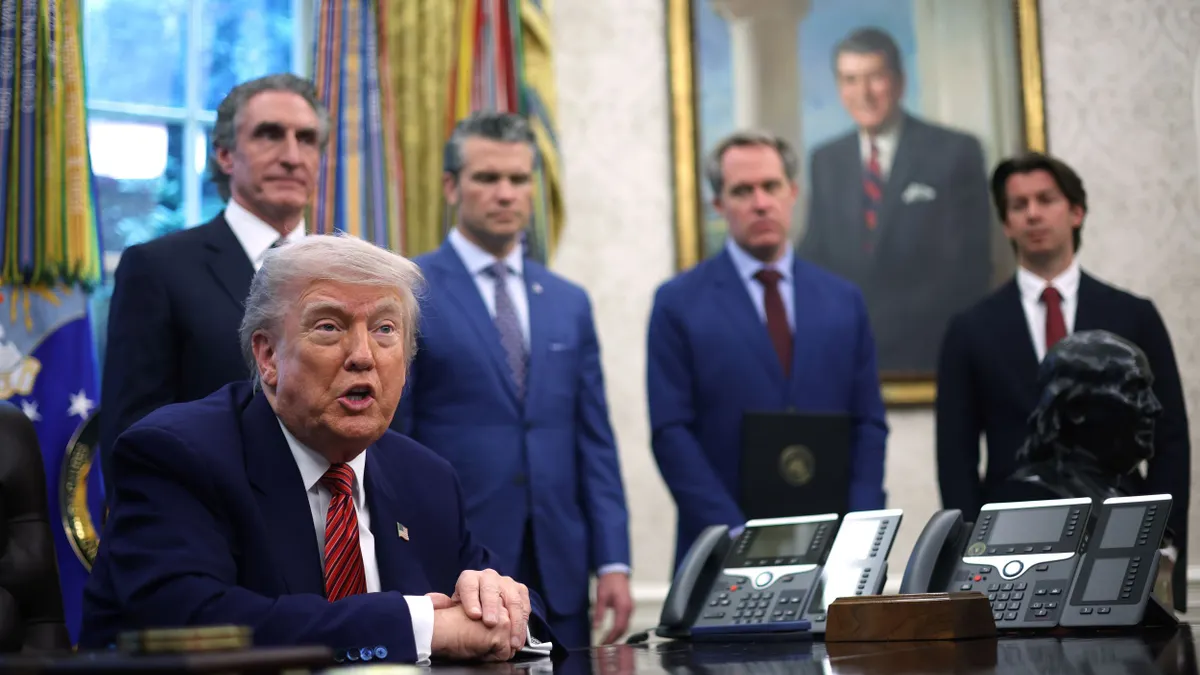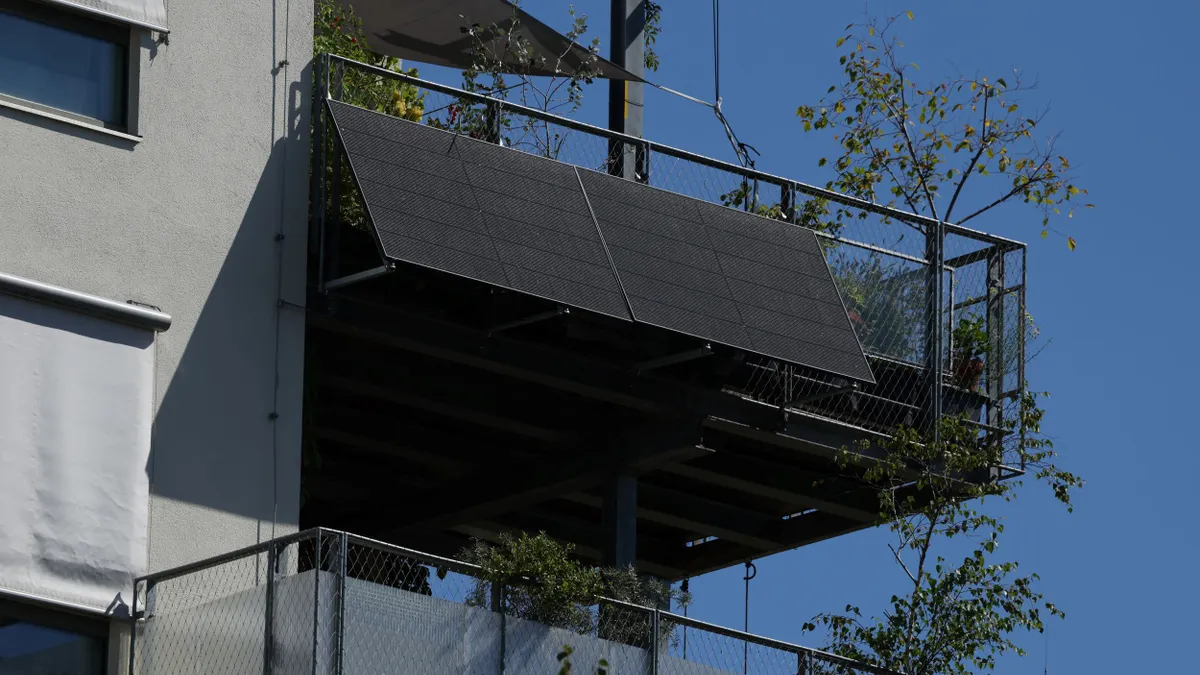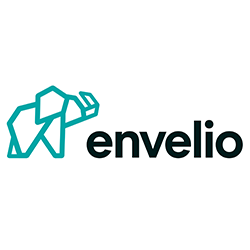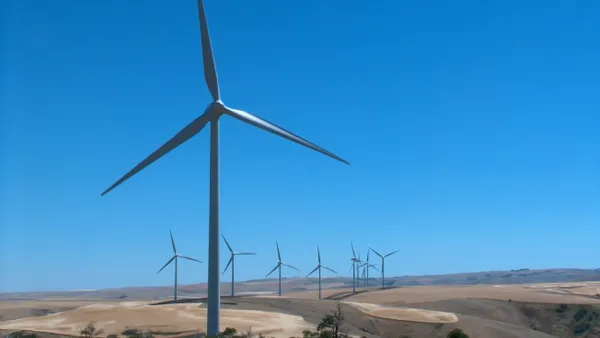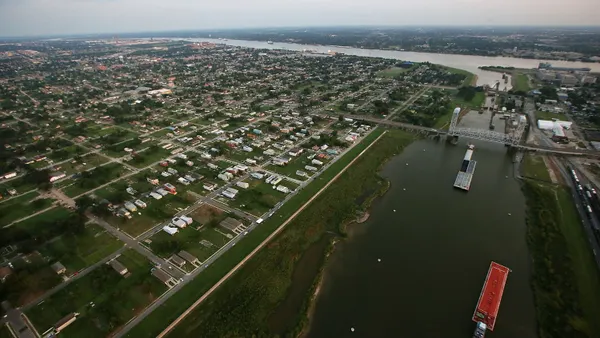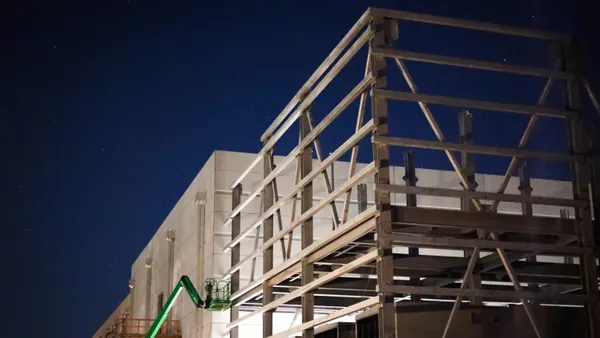Dive Brief:
- The U.S. Department of Energy on Tuesday selected 11 advanced reactor projects to participate in a nuclear pilot program that aims to expedite deployment without Nuclear Regulatory Commission licensing, according to a June request for applications.
- DOE wants to achieve criticality of at least three test reactors using an expedited authorization process by July 4, 2026.
- Oklo and its Atomic Alchemy subsidiary were selected to develop three of the projects. DOE “is opening the door to the market so new ideas, new approaches, and new designs can be built more quickly and efficiently,” Oklo CEO Jacob DeWitte said in a statement.
Dive Insight:
DOE unveiled its reactor pilot program in June, building on a May executive order signed by President Donald Trump that reformed reactor testing. The program aims to expedite testing of reactor designs authorized by DOE and located outside of the national laboratories.
DOE cited the Atomic Energy Act’s authorization of reactors under the agency’s “sufficient control,” in authorizing the pilot.
“Reactors built and operated pursuant to the DOE pilot program will not require Nuclear Regulatory Commission licensing,” the June request for applications said. “Nevertheless, DOE-approved reactor designs can and will be fast tracked for future NRC licensing. ... [The pilot will] provide a fast track to an NRC license, and hence, commercialization for authorized reactor design.”
DOE on Tuesday named 10 companies that could access a “fast-tracked approach to future commercial licensing activities.” They are: Aalo Atomics; Antares Nuclear; Atomic Alchemy; Deep Fission; Last Energy; Oklo; Natura Resources; Radiant Industries; Terrestrial Energy; and Valar Atomics.
Each company will be responsible for all costs associated with designing, manufacturing, constructing, operating, and decommissioning their test reactors, the DOE said.
“Seeking DOE authorization provided under the Atomic Energy Act will help today’s selected companies ... unlock private funding and provide a fast-tracked approach to future commercial licensing activities,” it said in a release.
DOE Deputy Secretary of Energy James Danly said in a statement that the agency will “do everything we can” to support the companies’ aim of “safely” achieving criticality by July 4, 2026.
“This shows that the DOE is ushering in a new era of building new nuclear in America by unleashing its unique capabilities to enable American nuclear innovators to build,” Oklo’s DeWitte said. “DOE’s selection of a number of projects provides a sweeping injection of urgency to meet the moment.”
DOE tapped Oklo for two projects and its subsidiary, Atomic Alchemy, was selected for a third. Oklo completed its acquisition of the radioisotope producer in March.
While nuclear boosters have hailed DOE’s pilot program, critics say the lack of NRC licensing requirements creates safety risks.
Edwin Lyman, director of nuclear power safety at the Union of Concerned Scientists, in May criticized the White House’s plan to move nuclear reactor siting, licensing and fuel supply for some projects outside the NRC.
“By fatally compromising the independence and integrity of the NRC, and by encouraging pathways for nuclear deployment that bypass the regulator entirely, the Trump administration is virtually guaranteeing that this country will see a serious accident or other radiological release that will affect the health, safety and livelihoods of millions,” Lyman said.



